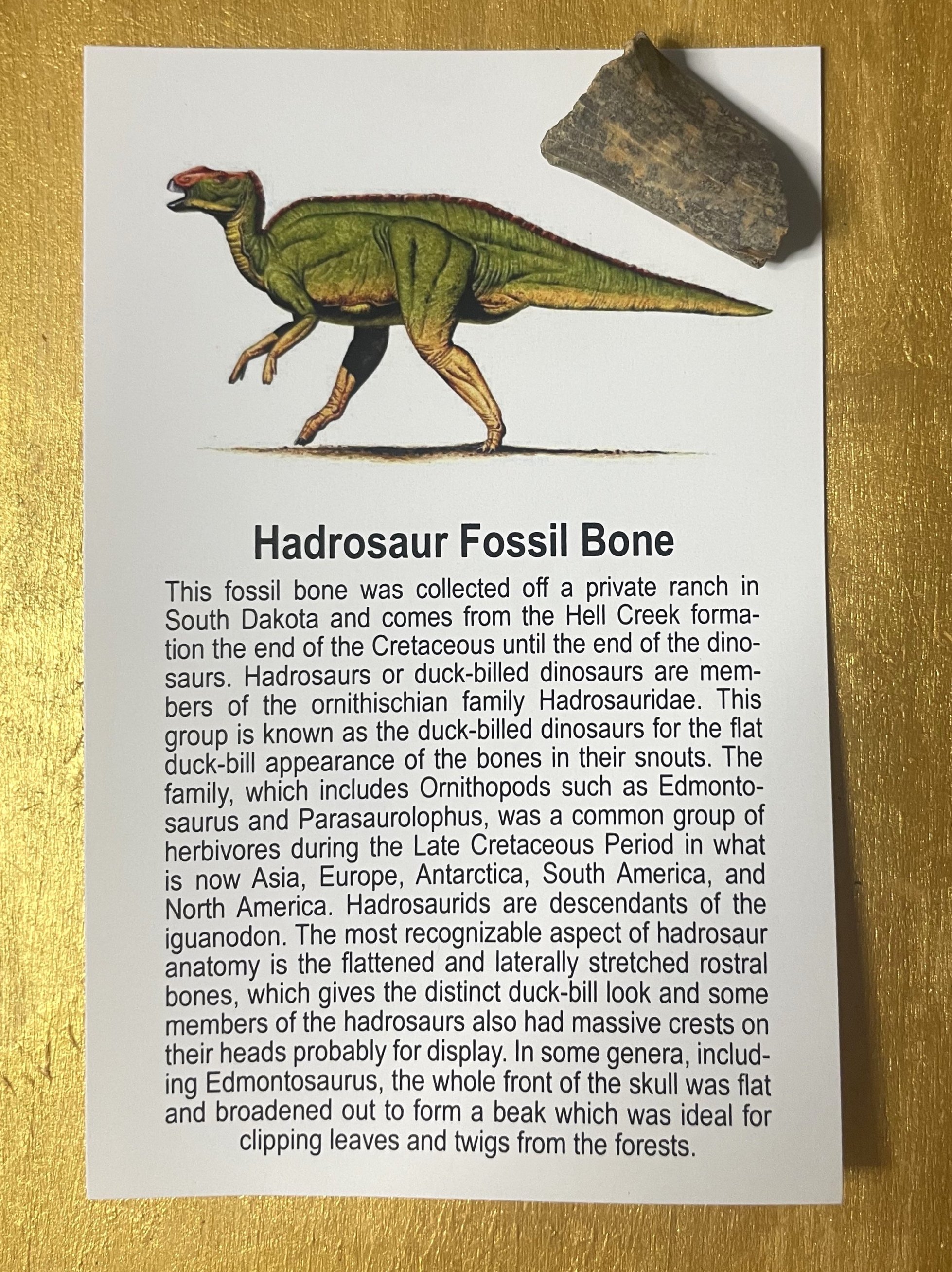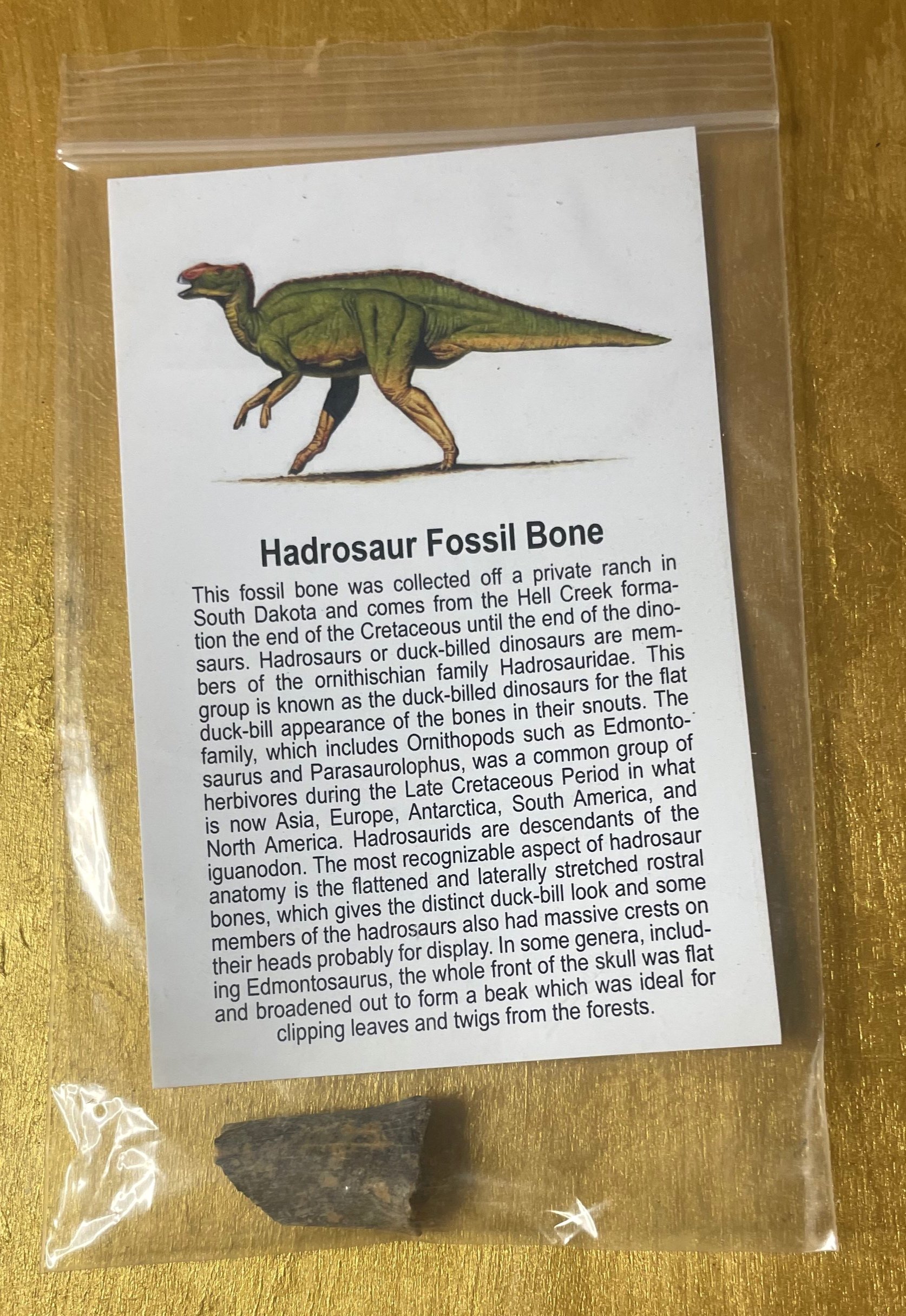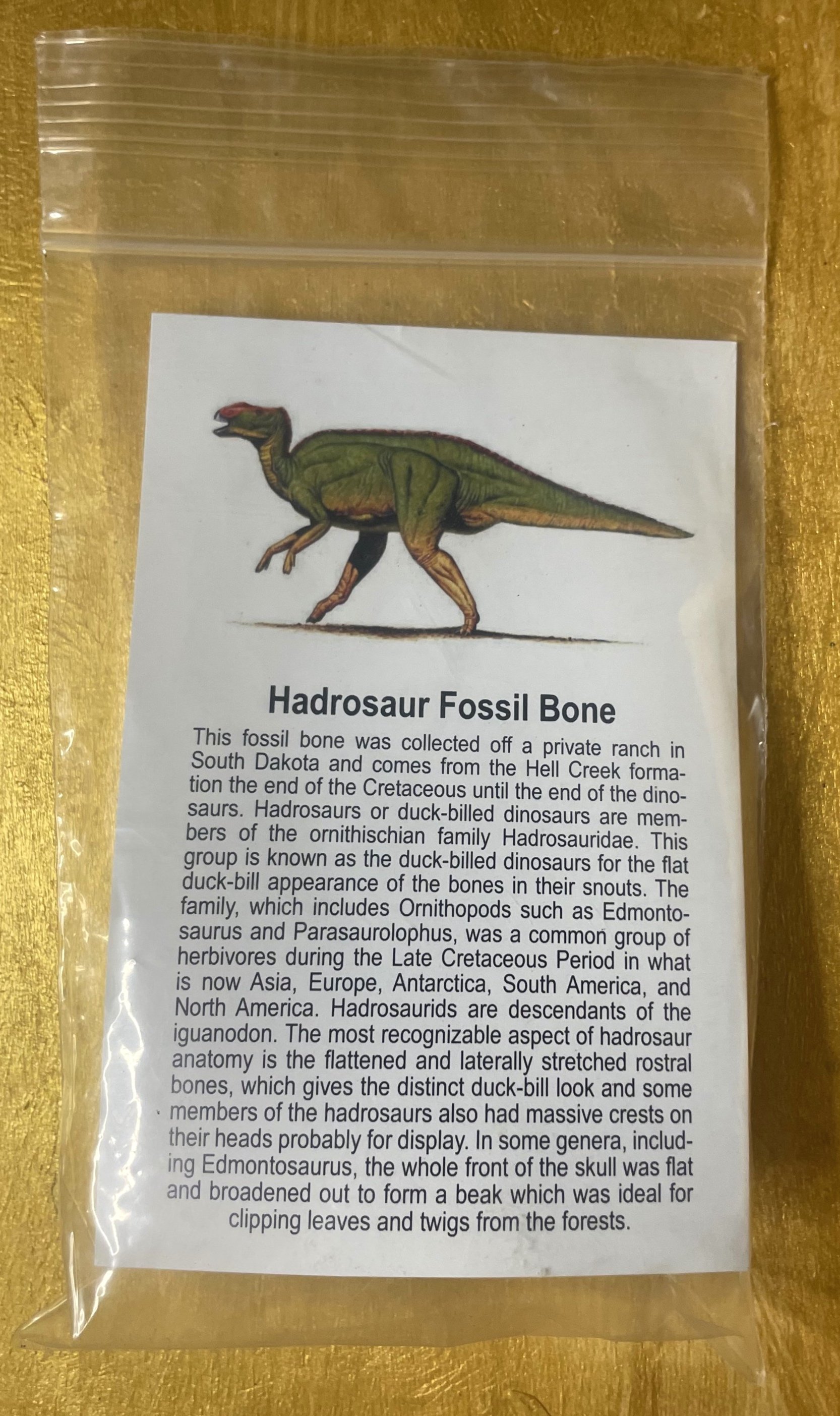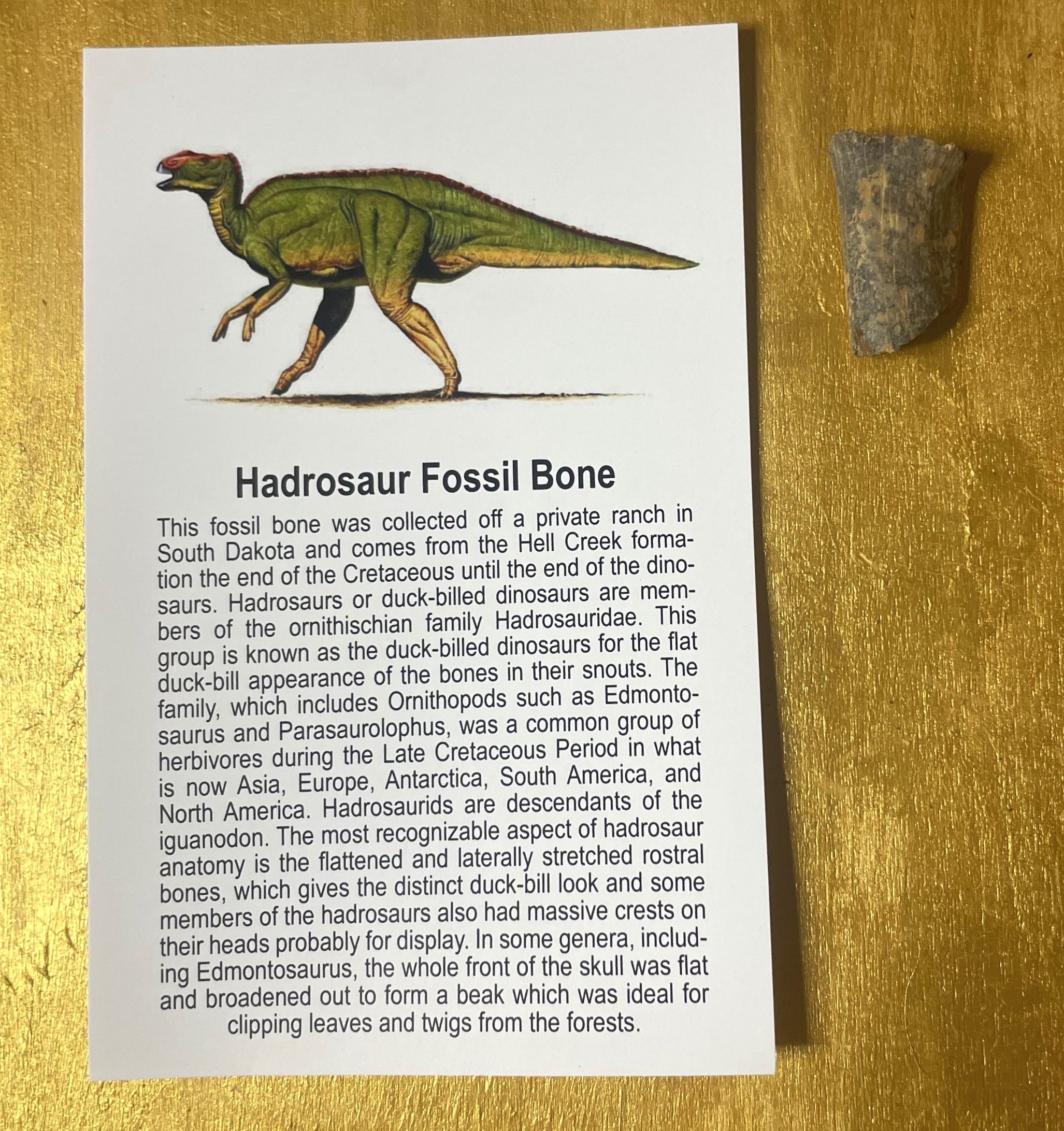Small Hadrosaur Fossil Bag
This Hadrosaur Fossil fragment was collected from the Cretaceous-aged Hell Creek Formation in South Dakota, making it approximately 70 million years old.
Each small bag contains a Hadrosaur Fossil Fragment and an informational card.
SPECIES
Triceratops Horridus
AGE/ERA
Cretaceous 70 Million Years Old
LOCATION
Private Land, Powderville, Montana
FORMATION
Hell Creek Formation
DIMENSIONS:
Approx. 1 inch piece
RESTORATION:
None
This Hadrosaur Fossil fragment was collected from the Cretaceous-aged Hell Creek Formation in South Dakota, making it approximately 70 million years old.
Each small bag contains a Hadrosaur Fossil Fragment and an informational card.
SPECIES
Triceratops Horridus
AGE/ERA
Cretaceous 70 Million Years Old
LOCATION
Private Land, Powderville, Montana
FORMATION
Hell Creek Formation
DIMENSIONS:
Approx. 1 inch piece
RESTORATION:
None
This Hadrosaur Fossil fragment was collected from the Cretaceous-aged Hell Creek Formation in South Dakota, making it approximately 70 million years old.
Each small bag contains a Hadrosaur Fossil Fragment and an informational card.
SPECIES
Triceratops Horridus
AGE/ERA
Cretaceous 70 Million Years Old
LOCATION
Private Land, Powderville, Montana
FORMATION
Hell Creek Formation
DIMENSIONS:
Approx. 1 inch piece
RESTORATION:
None
**Hadrosaur: The Duck-Billed Dinosaur of the Cretaceous Era**
Hadrosaurs are known as the duck-billed dinosaurs of the Cretaceous period. They lived from 75 to 65 million years ago. The family Hadrosauridae is divided into two categories: those with hollow cranial crests that may have used to blast auditory signals, and those without. Hadrosaurs were fast running herbivores that dwelled on land and had evolved a unique way of chewing their food.
Hadrosaur anatomy has been frequently well-preserved. Hadrosaurs are found in North America, Europe, and Asia. They are Ornithchians (meaning bird-hipped), and have Iguanodont ancestors that emerged in the Middle Jurassic era.




